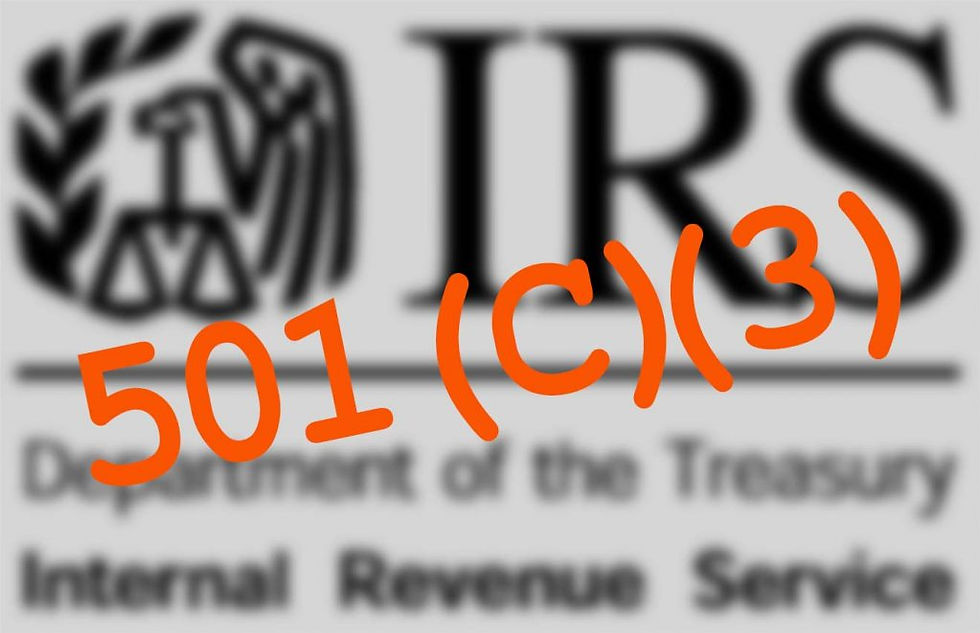How to Handle Conflicts of Interest in a 501c3 Board of Directors?
- EZ 501c3
- Feb 9, 2024
- 3 min read
Navigating the intricate terrain of the 501c3 application process can be a daunting task. However, even after obtaining your tax-exempt status, a nonprofit organization faces another challenge – managing conflicts of interest within its board of directors. These conflicts, if not handled properly, can undermine the organization's credibility and mission.
Today, in this blog post, we will explore effective strategies for addressing conflicts of interest within a 501c3 board of directors. By promoting transparency and accountability, you can ensure that your nonprofit remains true to its mission while maintaining the trust of donors and the public.
Let’s delve into this.

Navigating Conflicts of Interest Within a 501c3 Board of Directors
Conflicts of interest can arise when board members have personal, financial, or professional interests that may interfere with their duty to act in the best interests of the organization. It is crucial to address these conflicts promptly and ethically.
Now, let's delve into the strategies to handle these conflicts effectively.
1. Establish Clear Conflict of Interest Policies:
One of the first steps in managing conflicts of interest within a 501c3 board of directors is to establish clear conflict of interest policies during the 501c3 application process. These policies should outline what constitutes a conflict, how conflicts should be disclosed, and the procedures for handling them. By having these policies in place, you set a foundation for transparency and ethical behaviour from the outset.
2. Require Full Disclosure:
Board members should be required to disclose any potential conflicts of interest during board meetings. This disclosure should encompass not only financial interests but also personal and professional connections that might influence decision-making. Encourage an open and honest atmosphere where members feel comfortable sharing their conflicts.
3. Recusal When Necessary:
When a conflict of interest arises, it's often best for the affected board member to recuse themselves from discussions and decisions related to the matter. This step ensures that the individual's personal interests do not compromise the organization's interests. During the 501c3 application process, the IRS will scrutinize your conflict of interest policies, so demonstrating a proactive approach is crucial.
4. Create an Independent Review Committee:
To ensure impartiality and fairness in addressing conflicts of interest, consider establishing an independent review committee as part of your 501c3 board structure. This committee can consist of non-board members or individuals who do not have conflicts with the matter under review. They can provide objective recommendations and help make informed decisions.
5. Document Everything:
Proper documentation is vital in managing conflicts of interest. Keep thorough records of all discussions, disclosures, and actions taken to address conflicts. This documentation not only demonstrates transparency but also serves as evidence of compliance with the IRS requirements during the 501c3 application process.
6. Seek Legal Counsel:
In complex conflict of interest cases, it is advisable to seek legal counsel to ensure that your organization is adhering to all relevant laws and regulations, especially during the 501c3 application process. Legal experts can provide guidance on the best course of action and help protect the organization's interests.
7. Transparency and Reporting:
Transparency is key to maintaining public trust and credibility. Make sure that your organization regularly reports on its conflict of interest policies and actions taken to address conflicts. Transparency can also be a persuasive point in your 501c3 application process, as it demonstrates your commitment to ethical governance.
8. Continuous Education:
Educating board members about conflicts of interest and ethical governance is an ongoing process. Offer regular training and resources to help them understand their responsibilities and stay updated on relevant laws and best practices. This commitment to education can strengthen your nonprofit's position during the 501c3 application process.
9. Review and Revise Policies:
Lastly, it's essential to periodically review and revise your conflict of interest policies and procedures. As your organization grows and evolves, so too may the potential conflicts that arise. By staying proactive in adapting your policies, you ensure that your nonprofit remains resilient and compliant, both during and after the 501c3 application process.

The Concluding Notes
Effectively managing conflicts of interest within a 501c3 board of directors is crucial for the success and integrity of your nonprofit organization. By implementing clear policies, encouraging full disclosure, and taking proactive measures to address conflicts, you can maintain public trust, comply with IRS requirements, and advance your mission effectively.
During the 501c3 application process, the IRS will closely examine your conflict of interest policies and practices. Demonstrating a commitment to ethical governance and transparency will not only facilitate the application process but also enhance your organization's reputation in the long run.
Remember that conflicts of interest are not inherently negative; they become problematic when left unaddressed or mishandled. Embrace conflicts as opportunities to strengthen your organization's decision-making processes and ensure that your nonprofit remains dedicated to its mission, serving the community with integrity and purpose.



Comments